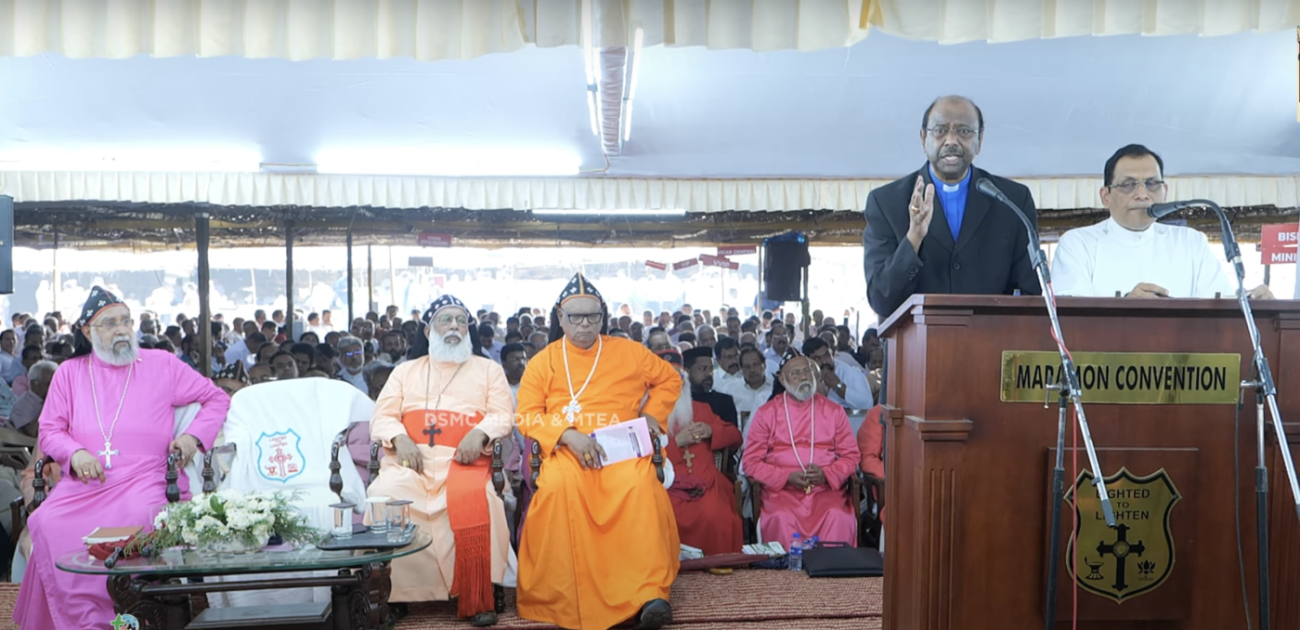WCC general secretary addresses 130th Maramon Convention

Photo: Screenshot from the livestream.
Rev. Prof. Dr Jerry Pillay addressed over 100,000 people attending Asia’s largest Christian gathering on 9 February.
“What a great witness your presence is, in this gathering of celebration, prayer, Christian unity, and an opportunity to drink from the wells of spiritual blessings,” said Pillay during his sermon.
“God has called us to be together today. For whatever reason you have come, you are not here by accident. God has called you to be here today and in the days that will follow. God is always calling us to serve Him and to serve the world with His grace, justice, and love. Often times we do not understand this, and we push it away,” he said.
The 130th Maramon Convention is currently underway, taking place from 9-16 February on the sandy banks of the Pampa River in Maramon, Kerala, India. Organized by the Mar Thoma Evangelistic Association, this annual event is renowned as one of the largest Christian gatherings in Asia.
“God called me, God called the clergy present, and God called you as children of God. All through the Scriptures, God calls people to serve Him in different ways,” added Pillay. “What is God calling me to do? What is God calling you to do? What is God calling us to do?”
“There must come a time when we take the decision to follow Jesus, to take stock and reflect on the call God is placing in our lives. I say to you today: Follow Jesus. Follow Jesus. Follow Jesus.”
Theodosius Mar Thoma, Metropolitan of the Malankara Mar Thoma Syrian Church, inaugurated the event at a function to be presided over by Isaac Mar Philoxenos.
Besides the bishops in the Mar Thoma Church, the convention also features Victor Aloyo, president of the Columbia Theological Seminary, Major Archbishop Mar Raphel Thattil, and Archbishop Mar Thomas Tharayil, among others.
The Maramon Convention continues to be a significant event for Christians worldwide, offering a platform for spiritual rejuvenation, community building, and discussions on pertinent social issues.
Video: Inaugural Session of the 130th Maramon Convention
Orgnial News from World Council of Churches










